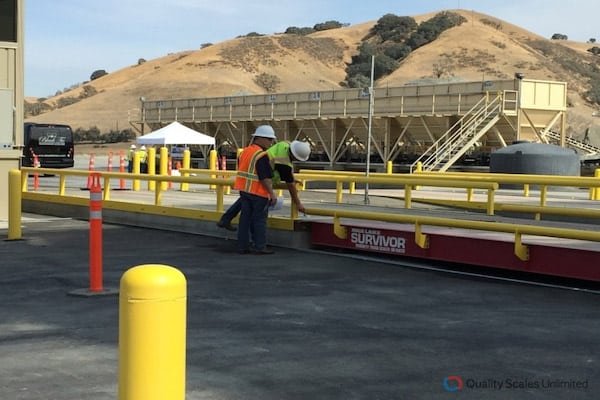After extracting oil and gas from the ground, you have to accurately measure and weigh how much you have extracted using weighing systems like an industrial weight scale. Accurate weighing and measurement ensure that you get paid the right amount.
In this article, we’ll talk about all you need to know about measurement in the oil and gas industry.
Things you must know about measuring Oil & Gas Production
- Initial Measuring Process of Crude Oil
Crude oil generally contains sediment, seawater, and several impurities when extracted from the ground. Before measuring it, crude oil must be put through an onsite filtering process, which removes the sediment and impurities. The output is then measured using a weighing system.
- Measuring Crude Oil
Smaller amounts of crude oil are measured as the transport tanks are filled. Truck scales are mostly used for this purpose.
Larger volumes are measured by valves that record the volume as it enters the pipeline. You need to measure and record the initial volume.
- Weighing Natural Gas
Natural gas is measured using a device installed in a gas pipeline where the gas is being extracted. The meter will record the volume and pressure, allowing you to determine the amount of natural gas.
- Oil and Gas Measurement
Crude oil and gas are measured before leaving the well site. Oil is measured in barrels (bbl). Gas production is measured in cubic feet and is reported in million cubic feet (Mmcf), billion cubic feet (Bcf) or trillion cubic feet (Tcf)
You will be paid based on the initial measurement of the product. So, ensure that you use the right weighing system that will measure accurately.
4 Factors That Can Affect Weighing System’s Accuracy
- Load Cell Accuracy
Get a high-quality load cell to get accurate weighing. The load cell converts the mechanical force into an electrical signal. This signal is measured by the strain gauges that are bonded at points on the cell.
If you apply the load at the proper spot on the load cell, the strain gauges will provide a proportional electrical signal. Check the response time of the load cell for further accuracy.
- Load Factors
Apply load to each load cell in the weighing system like truck weight scale as specified by the manufacturer. For accurate weighing, only the load cells must support all the weight that you want to measure.
Align the load point assembly correctly to ensure that the mounting hardware channels the load directly through the load cell. The level of each load cell should be the same. Ensure that the floor beneath the load cells is strong enough to bear the weight of the load.
- Environmental Forces
The accuracy of the weighing system will be high only when the weight force is transmitted to each load cell. However, environmental forces acting on the load cell can also affect the load cell signal. These factors include large temperature variations, shock loading, pressure difference, wind loading, to name a few.
Try to eliminate or minimize as many environmental factors as possible to reduce errors in the load cell signal.
- Mechanical and Electrical Noise
The load signal must arrive at the weight controller in the cleanest form possible to ensure accuracy. As we discussed, the load cell transmits a signal that represents a mechanical force to an electrical signal. However, vibrations of the machinery are also a mechanical force that gets converted to electrical signals. Moreover, EMI and RFI are electrical signals that also get measured by the weight controller.
- Interference with Signal Transmission
Moisture and temperature can interfere with the signal transmission. Moisture can enter the weighing system’s junction box and attack each load cell. This will reduce the capacitance between the signal lines. This, in turn, will cause the load cell excitation lines to couple with the signal lines and create electrical noise. As we saw, any kind of electrical signal can affect the weighing accuracy.
Large temperature fluctuations can cause resistance changes in the cable. This will again cause excitation changes, leading to changes in load cell signal.
Eliminate as many mechanical and electrical noise sources as possible to improve the weighing accuracy.
Taking Care of Industrial Scales
In the oil and gas industry, measurement is critical and is done every single day. If you take care of the scales, you can be sure of getting accurate results. Here are some ways you can make sure you get accurate results:
- Keep the Foundation Free of Debris: Debris and dust might accumulate through the day. It is essential that you remove this debris regularly to avoid inaccuracies in weight measurements. You can use a pressure sprayer to clean the scales but ensure that the load cells and junction boxes can withstand that pressure. If it damages the equipment, the measurements would be incorrect.
- Conduct Regular Inspections: Keep an eye out for anything that seems out of place. Look for corrosion, wear and tear, or signs of damage. Inspect the junction boxes, wiring and hardware of the system. Look for signs of moisture inside the electronics. Regular inspections will give you the confidence that the weighing system is functioning properly. This way you can be assured of accurate measurements of oil and gas production.
- Keep the Scale Grounded: Keep the scale grounded as a basic defense from lighting and power surges. Connect the scale to the manufacturer’s grounded system. If the ground connection is disrupted, it will shunt the power surges to other places like load cells and scale electronics, causing a lot of damage.
- Make Important Adjustments: Industrial scales can expand and contract a little at different times of the year. Therefore, you need to make the necessary adjustments for thermal expansion so that you get accurate readings. Ensure that the scale is giving accurate measurements by testing it with certified weights.
Regular maintenance of industrial scales won’t just give you accurate readings but also prolong the life of the scales. Choose the right equipment and weighing scales that can withstand the harsh conditions of the oil and gas industry.




